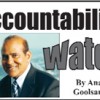
Against the grain of democratic norms and values
So the President has made good his threat to prorogue Parliament!

So the President has made good his threat to prorogue Parliament!
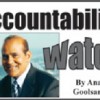
Some years ago, when I was at the Audit Office, a letter was mistakenly sent to the Attorney General.
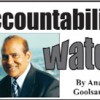
This is our third in a series of articles on the above subject.
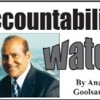
As I was about to prepare this article, two news items caught my eyes.
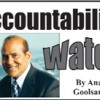
In Guyana, public procurement accounts for approximately $150 billion or 70 per cent of the national budget.

Last week’s article provoked quite a reaction from two bloggers who feature every day in the Stabroek News.

On 27 October 2014, citizens across Ontario, including the cities of Toronto, Mississauga and Brampton where most of the estimated 100,000 Guyanese in Canada live, will be electing new Mayors and City Councillors.

Another controversy has erupted in relation to the design and construction of the Specialty Hospital at Turkeyen, East Coast Demerara.
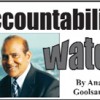
In the light of the public outrage at the extent to which certain foreign companies are reported to be carrying out logging operations in Guyana and exporting logs, I have decided to examine the Forests Act 2009 to have a better understanding of it and to share that understanding with readers.
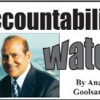
In today’s column, we discuss a recent experience in trying to obtain information under the Access to Information Act that the National Assembly passed the Act in September 2011 to provide citizens with reasonable access to information on government programmes and activities.

Since my last article, two further developments took place as regards the allegations that the Minister of Finance has been undermining the authority of Parliament by authorizing withdrawals from the Consolidated Fund without the latter’s authority.

Since my last article on the above subject, two developments took place.

In February of this year, the National Assembly approved a Bill for the holding of local government elections no later than 1 August 2014.

Last week, we began a discussion of Financial Paper 1/2014 that the Minister of Finance presented to the National Assembly three Thursdays ago.

We begin our discussion of Financial Paper 1/2014 that the Minister of Finance tabled in the National Assembly two Thursdays ago.

The Public Accounts Committee (PAC) recently completed its examination of the public accounts of Guyana for the years 2010 and 2011.
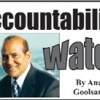
The Integrated Financial Management System (IFMAS), which the Guyana Government implemented in 2004, has been under the microscope in recent days in the Kaieteur News.
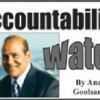
The Marriott Hotel project is back in the news following the announcement that ACE Square Investment Ltd.

Since last December, the nation had to endure some of the most unpleasant occurrences at City Hall, following the Head of the Presidential Secretariat’s announcement of the substantive appointment of Ms.

Five years after the Government of Guyana and the United States Government signed an assistance agreement for the implementation of programmes like the Leadership and Democracy (LEAD) project, the nation learnt that the project has now been put on hold.
The ePaper edition, on the Web & in stores for Android, iPhone & iPad.
Included free with your web subscription. Learn more.